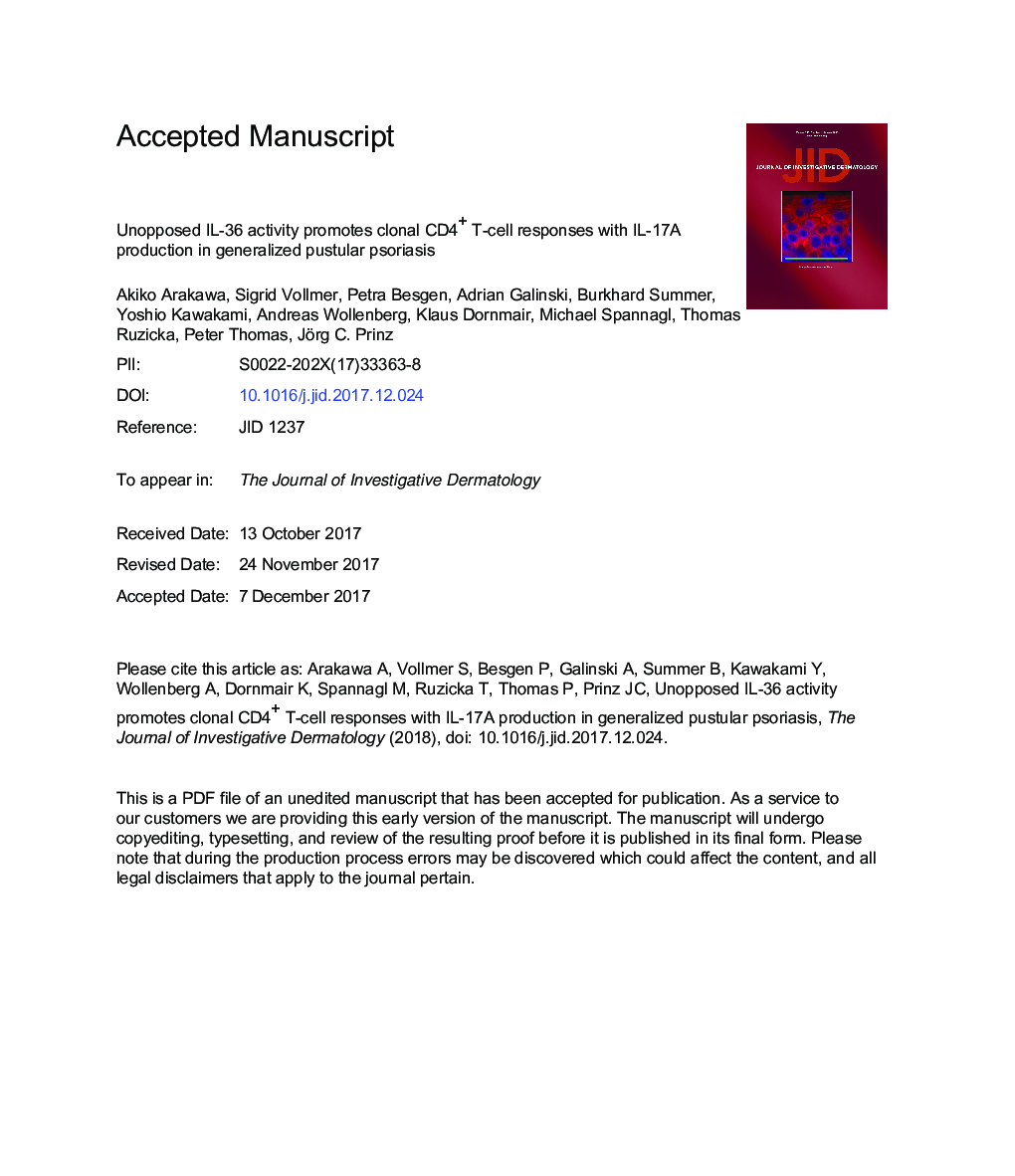| Article ID | Journal | Published Year | Pages | File Type |
|---|---|---|---|---|
| 8715889 | Journal of Investigative Dermatology | 2018 | 32 Pages |
Abstract
Generalized pustular psoriasis (GPP) is the most severe psoriasis variant. Mutations in the IL-36 antagonist IL36RN, in CARD14 or AP1S3 provide genetic evidence for autoinflammatory etiology but cannot explain its pathogenesis completely. Here we demonstrate that unopposed IL-36 signaling promotes antigen-driven and likely pathogenic T-helper type 17 (Th17) responses in GPP. We observed that CD4+ T cells in blood and skin lesions of GPP patients were characterized by intense hyperproliferation, production of the GPP key mediator, IL-17A, and highly restricted TCR repertoires with identical T-cell clones in blood and skin lesions, indicating antigen-driven T-cell expansions. The clonally expanded CD4+ T cells were major producers of IL-17A. IL-36 signaling substantially enhanced TCR-mediated proliferation of CD4+ T cells. Moreover, GPP patients showed preferences for HLA-DRB1â14, HLA-DQB1â05, and HLA-DQB1â03. We conclude that in GPP unopposed IL-36 signaling and certain HLA-class II alleles may cooperate in promoting antigen-driven Th17 responses, which in the obvious absence of exogenous triggers may reflect autoimmune reactions. This study reveals a pathogenic pathway where innate immune dysregulation promotes T-cellâmediated inflammation in GPP.
Keywords
Related Topics
Health Sciences
Medicine and Dentistry
Dermatology
Authors
Akiko Arakawa, Sigrid Vollmer, Petra Besgen, Adrian Galinski, Burkhard Summer, Yoshio Kawakami, Andreas Wollenberg, Klaus Dornmair, Michael Spannagl, Thomas Ruzicka, Peter Thomas, Jörg C. Prinz,
